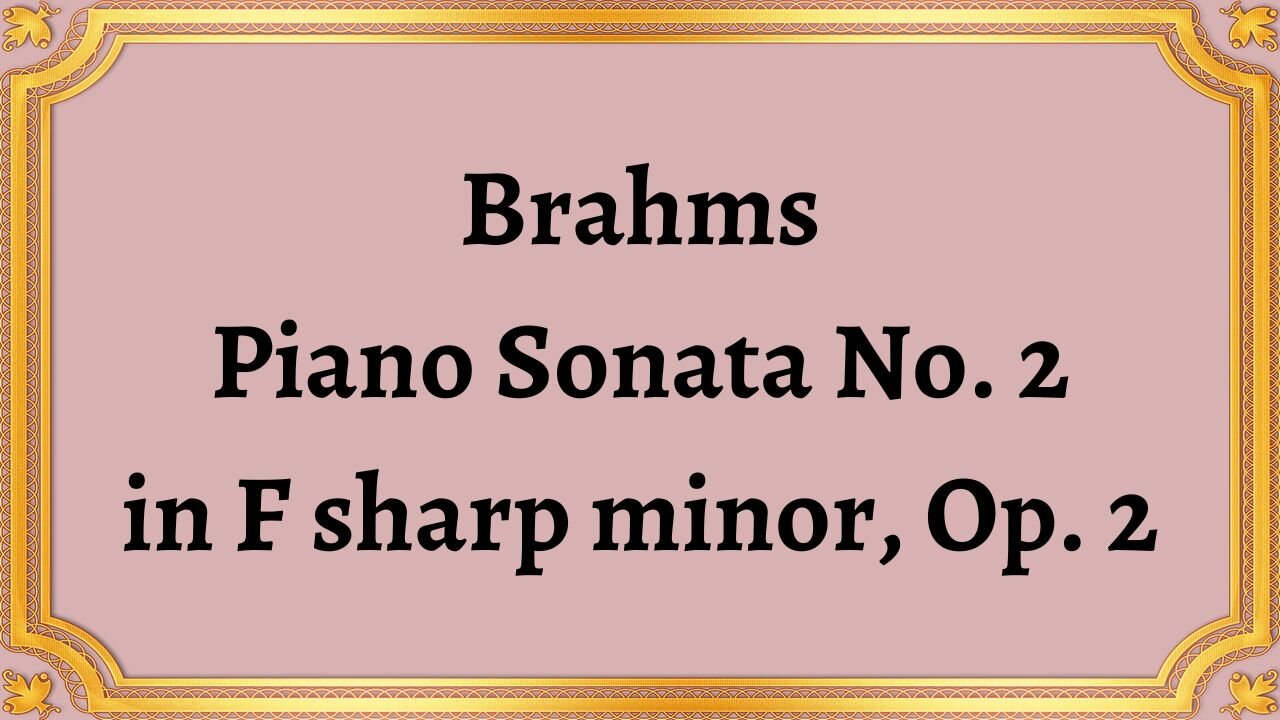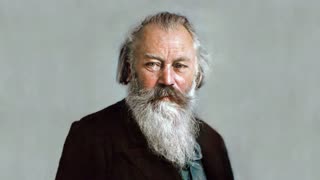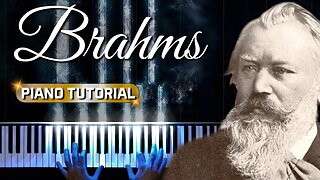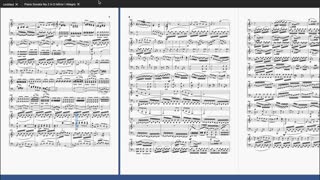Premium Only Content

Brahms Piano Sonata No. 2 in F sharp minor, Op. 2
#classical_music #Brahms#sonata
Brahms Piano Sonata No. 2 in F sharp minor, Op.2 is a significant work in the piano repertoire. The sonata was written by Johannes Brahms and was premiered in Hamburg, Germany in 1854. The sonata is known for its dramatic and virtuosic qualities, and is considered to be one of Brahms' most technically demanding works for piano.
The sonata is divided into four movements, and each movement has a distinct character and mood. The first movement, Allegro non troppo, con passion, is a powerful and dramatic opening to the sonata. The movement is in sonata form, which is a common structure in classical music. The second movement, Andante con espressione, is more lyrical and introspective, with a beautiful melody and a subtle harmonic complexity.
The third movement, Scherzo: Allegro, is a lively and playful scherzo, which is a type of musical form that features a fast tempo and a light, playful character. This movement is characterized by its rhythmic energy and virtuosic passages. The final movement, Finale: Sostenuto – Allegro non troppo e rubato, is a stunning conclusion to the sonata. The movement begins with a slow and introspective section, which gradually builds to a dynamic and fiery climax.
The sonata is often considered to be one of Brahms' most technically demanding works for piano, and it requires a high level of virtuosity and technical skill to perform effectively. The sonata is also notable for its unconventional use of harmony and form, which was a departure from the established techniques of the time.
Brahms Piano Sonata No. 2 in F sharp minor, Op.2 is a significant work in the piano repertoire, and it remains a popular and frequently performed work among pianists today. Its virtuosic and dramatic qualities, combined with its originality and technical demands, make it a true masterpiece of the piano literature. The sonata is a must-hear for anyone interested in classical music, and is a testament to the enduring legacy of Brahms as one of the greatest composers of the Romantic era.
You have the opportunity to support the channel https://destream.net/live/RadSiarAl/donate
-
 11:13
11:13
Classical music_Music Inspiration
2 months agoFrederic Chopin Fantasy in F minor, Op. 49
792 -
 27:01
27:01
Classical Music P.D.
2 years agoPiano Sonata No. 2 in F minor, Op. 2 - Johannes Brahms 'Hardy Rittner'
18 -
 6:33
6:33
RusheNoCopyrightMusic
2 years agoBrahms Sonata C Major Opus 1 Parte 3 Scherzo - Piano Tutorial
1 -
 10:54
10:54
yfeidelson
2 years agoPiano Sonata No. 2 in D minor I Allegro
5 -
 1:00
1:00
RusheNoCopyrightMusic
2 years agoBrahms - Sonata in C Major Piano Tutorial #shorts #brahms #classicalmusic
3 -
 1:06:18
1:06:18
Timcast
4 hours agoGangs Order KILL ON SIGHT DHS Agents, Chicago Is A WAR ZONE
233K161 -
 1:06:01
1:06:01
MattMorseTV
4 hours ago $18.87 earned🔴Schumer’s FAILURE sparks Democrat MUTINY.🔴
41.6K46 -
 1:06:51
1:06:51
Jeff Ahern
1 hour agoMonday Madness with Jeff Ahern
3.1K2 -
 18:56
18:56
Neil McCoy-Ward
8 hours ago🔥 The UK Has A *HUGE* Problem! (And It's About To Get Worse...) 🚨
18.7K16 -
 9:37
9:37
Silver Dragons
3 hours agoSilver Price EXPLODES HIGHER - Is $50 Silver the New Floor?
19.9K4